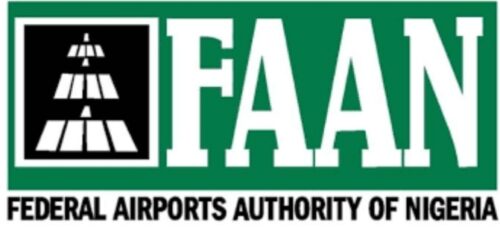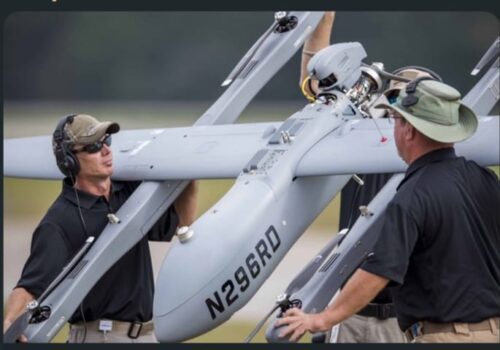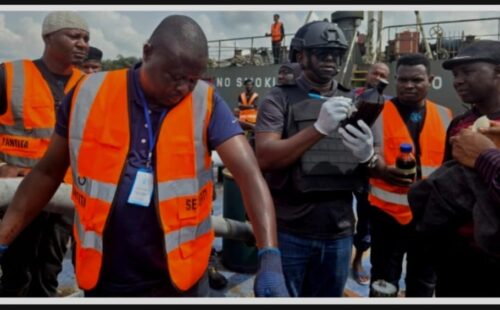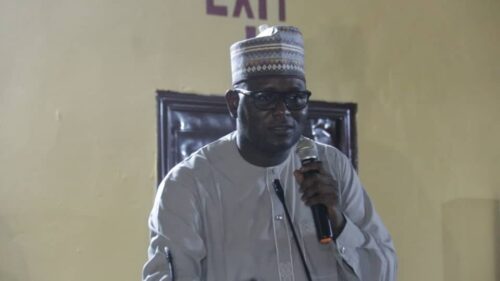282,000 Children Displaced in Ongoing DR Congo Crisis
… UNICEF Seeks $22 Million in Humanitarian Aid to Support Children at Risk
… Ramaphosa: South Africa Will Not Relent in Its Support for DR Congo
By Nifemi Coker
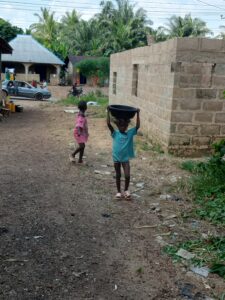
The United Nations Children’s Fund (UNICEF) has reported that an additional 282,000 children have been displaced in the ongoing crisis in the northern and southern regions of Kivu, Democratic Republic of Congo (DRC), over the past three months.
This brings the total number of displaced persons in the region during the period under review to 658,000.
As conflict continues to force Congolese nationals and residents to flee their homes and displacement camps in search of safer shelters, UNICEF is calling on partners to provide $22 million in humanitarian aid. These funds will support children by ensuring access to sanitation services, medical care, and protection against abuse and violence.
In a statement published on its official website, UNICEF highlighted that as displacement numbers rise and people move multiple times in search of safety, children remain at heightened risk.
“Amidst an increasingly volatile situation, with fighting reaching Goma, the provincial capital of North Kivu, families have abandoned displacement camps on the northern and western outskirts of the city, relocating to other areas in the town center. Some of these individuals have been displaced for the third, fourth, or even fifth time in recent weeks.
“The primary risks to children at this time are health and protection concerns. Overcrowded and unsanitary conditions increase the likelihood of disease outbreaks, including cholera, measles, and mpox. Parents are hesitant to take sick children to hospitals due to fears of being caught in the crossfire and a lack of available medical beds.
“UNICEF has received reports of a surge in the number of children who are separated from their parents or traveling unaccompanied. This exposes them to dangers such as kidnapping, abduction, recruitment by armed groups, and sexual violence.
“UNICEF is urgently calling for $22 million in funding to continue delivering life-saving aid. This includes providing clean water, sanitation, medical supplies, treatment for severely malnourished children, and child protection services.”
Meanwhile, South African President Cyril Ramaphosa has reaffirmed his country’s commitment to supporting the Democratic Republic of Congo, stating that South Africa will not waver in its assistance.
In a statement on Monday, Ramaphosa paid tribute to 14 South African soldiers who lost their lives in violation of a ceasefire agreement between the DRC and Rwanda, which had been facilitated by Angolan President João Lourenço.
He emphasized that while the crisis in the DRC may seem like a national conflict, it is, in reality, an African crisis requiring African intervention. He therefore called for an immediate ceasefire and an end to hostilities to pave the way for diplomatic efforts toward lasting peace.
“In the last two weeks, 14 of our soldiers have been killed in the eastern Democratic Republic of the Congo (DRC) after coming under attack.
“As a nation, we pay tribute to our fallen soldiers. They are both South African and African heroes. They lost their lives defending the defenseless—the men, women, and children who are victims of one of the world’s longest-running conflicts.
“In the wake of the tragic deaths of our soldiers, some have questioned South Africa’s presence in eastern DRC. Some have argued that we have no business being there.
“But violence and conflict in Africa are the concerns of all Africans. The humanitarian, economic, and social effects of these conflicts extend beyond borders and regions. Instability in any part of the continent affects prospects for growth and development across Africa.
“For lasting peace to be achieved in eastern DRC, there must be an immediate end to hostilities, and all parties must respect a ceasefire. This ceasefire is a necessary precondition for peace talks, which must include all stakeholders state and non-state actors, Congolese and non-Congolese alike.”
Ramaphosa further stated that while peace negotiations continue, ensuring the safety of South African troops deployed to highly volatile areas remains a top priority. He called on all involved parties to demonstrate “strong political will and leadership” to end the conflict, respect the territorial integrity of the DRC, and commit to peace.
“As a nation, we have a duty to support our African brothers and sisters, just as they showed solidarity and provided material support during our struggle for liberation. South Africa will not relent in its support for the people of the DRC, ensuring that they achieve the peace and security they rightfully deserve,” Ramaphosa said.


